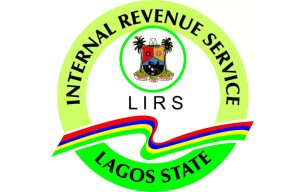
…Says Embassies incurring huge debts on utility bills, maintenance, litigations, others
The office of the Auditor General of the Federation(AuGF) has exposed the decaying operation of Nigeria missions across the world. According to a report by the AuGF some property belonging to the various missions were being underutilized and decaying in the various countries, thereby bringing the nation’s image to disrepute.
The report which is currently being considered by the House of Representatives Committee on Public Account states that the 22 story Nigeria House in New York s fast deteriorating and under utilized.
It also said that the Nigeria Embassy in Berlin was incurring huge bills, on an average of €50,000.00 (N8,750,000.00) annually on utility bills and additional expenses to secure a property in Bonn which the embassy has since vacated.
It explained that the property in Bonn was used as the residence of the Nigeria Ambassador to Germany when the Mission was there (Bonn). Since the relocation of the Mission to Berlin, the property remains unoccupied and is fast deteriorating.
The AuGF said “the Nigerian Permanent Mission to the United Nations, New York is housed at the Nigerian House which is situated at No. 828, Second Avenue, New York, USA. This building is a 22 story building and it also houses the Nigerian Consulate-General, The National Boundary Commission of Nigeria and the National Intelligence Agency (NIA).
“The property, which is strategically located, just few blocks to United Nations Headquarters, is grossly under-utilized. Meanwhile, the Mission expends heavily on the payment of utility bills and maintenance. In 2013, the Mission expended the sum of N221,087,818.75. Despite this, the property is fast deteriorating”.
The report said that in view of the strategic location of the property and the fact that it is fast deteriorating and under-utilized, the property should, as a matter of urgency, be comprehensively rehabilitated before it becomes an eye sore and constitute an embarrassment to the Federal Republic of Nigeria if ignored.
“That after rehabilitation, the un-utilized space could be put up for rent. This will keep the property in good shape and also generate revenue to the Federal Government especially now that the sources of government revenue are fast dwindling”.
At the Nigerian embassy in Berlin, the Auditor General said “the Embassy has a property in Bonn which was used as the residence of the Ambassador when the Mission was there. Since the relocation of the Mission to Berlin, the property remains unoccupied and is fast deteriorating. Furthermore, the Embassy is incurring huge bills, on an average of €50,000.00 (N8,750,000.00) annually on utility bills and additional expenses to secure the property.
“If the Embassy cannot find an alternative use for the property, it should either be disposed-off or leased to generate revenue to the Government instead of allowing it to deteriorate and at the same time wastefully expending huge sums on it.
“The Embassy of Nigeria, Berlin, Germany, expended the sum of €66.5 million (N11,637,500,000.00) on rent of accommodation for home based staff in the year 2010. This amount is rather on the high side and in view of the economic reality the Nation is facing, this trend cannot be sustained.
“In view of this, Government should explore the outright purchase of properties. Alternatively, mortgage should be considered subject to availability of funds. This will put an end to the annual expenditure of this huge amount of €66.5 million (N11,637,500,000.00) on rent of residential accommodation”.
The report said further that the embassy has “8 members of home based staff and the Ambassador. The 8 members of home based staff were occupying 8 units of rented residential houses. The Ambassador resides in a government owned property, the Embassy occupies a government owned property in Berlin while another property at Bonn owned by Government is presently unoccupied.
“However, the Embassy expended the sum of N45,160,495.30 and N35,228,977.07 on maintenance of Office and Residential accommodation in 2012 and 2013 respectively. The expenditure of the sum of N80,389,472.37 in 2012 and 2013 on 11 number of properties out of which 8 are rented does not portray economy. It would appear that the Embassy just expended this huge amount because the money was voted for it without putting economy into consideration.
“Furthermore, the property at Bonn was fast deteriorating without any attention given to it by Government. Meanwhile, the Embassy is expending massively on the payment of utility bills at that property. I have opined that this property at Bonn be disposed off or let-out to generate revenue and save it from further deteriorating or total collapse.
“Furthermore, the Embassy has a chancery at Berlin which is owned by the government of Nigeria, Surprisingly, a total sum of N31,264,762.09 was remitted to the Embassy in 2012 and 2013 for the payment of rent for Office (N16,254,395.09 and N15,010,367.00 remitted in 2012 and 2013 respectively).
“Even though the Embassy did not expend on this subhead as evidenced by the 2012 and 2013 Vote Book balances, there was no evidence to show that the balance of N31,264,762.09 was returned to chest at the close of the financial years 2012 and 2013. It was in error to appropriate funds for the payment of rent of Office when the Embassy was occupying a Government owned property. This arbitrary appropriation to subheads that were not needed could be the reason why Missions over expend on some subheads”.
Similarly, the Auditor General indicted the Nigerian embassy in The Hague, Netherland of paying about €226,393.345 to two different contractors for the construction and repairs of the roof of the Chancery, while spending another €66,730.00 on the renovation of 6 Government properties.
The report said “I cannot comprehend how 2 (Two) contractors can be engaged to repair the roof of one building. This definitely amounts to contract splitting which contravenes the Public Procurement Act. Furthermore, all the payment vouchers did not have any supporting document such as Priced Bills of Quantities (BOQ), the list of the 6 properties that were renovated, the engagement letters to the contractors for the renovation, Contract Agreement, Invoices from the contractors, request for payment from the contractors and certificates of completion.
“The sum of €28,670.00 (N6,232,608.70) was paid to a Consultant as part payment for consultancy services for the provision of Priced Bills of Quantities to the Embassy. However, the voucher did not have documents to support the payment. The Priced Bill of Quantities which was awarded at a total consultancy fee of €45,000.00 (N9,183,673.47) could not be produced for verification.
“Similarly, another payment of the sum of €14,000.00 (N2,978,723.40) made to another consultant being payment for various consultancy services to the Embassy had no supporting documents. The Mission claimed that these were bills that have been outstanding for many years, yet the Mission did not find it expedient to attach the supporting documents”.
The Auditor General said that the staff strength of Nigeria High Commission in the United Kingdom was over-bloated, especially by local staff, adding that in most cases, there was arbitrary and discretionary engagement, deployment and placement of local staff were observed .
It said further that “there was a general lack of standard and uniformity in the conditions of service of the local staff, most of whom are Nigerians living in the United Kingdom. It was noted that an average sum of £226,974.80 was spent monthly on the remuneration of the local staff, compared to the £74,108.38 spent on the home based officers Some of the local staff could not clearly define their work schedules”
The Auditor General said further that the Nigerian Embassy in Berlin spent a whopping N32.32 million to maintain the former Ambassador’s residence at Valkanstrasse 69, 63179 Bonn, Germany in 2014 and part of 2015, even when the property has remained unoccupied since the Embassy relocated to Berlin from Bonn in 2001.
The report said “the property was initially accessed by an Estate Valuer in 2001 for the purpose of swapping it with 2 (Two) buildings at Berlin, its value was Euro 7 million. Owing to inaction of the Ministry of Foreign Affairs, the value has reduced to Euro 1.2million in 2014.
“Apart from the reduction in value, the Bonn Municipal Council has indicated its intention to de-classify the property from Diplomatic status. If this is allowed to happen, the property will attract other charges which the Embassy at Berlin must pay from its lean resources. Recently, attempts were made by illegal squatters to break into the house.
“The Consulate is deeply indebted to several creditors, some of whom have taken the office to court to seek redress. From available records, a total of €783,809.66 was owed by the mission as at 19th August, 2016. It was observed that the rent of the Chancery and officer’s residential quarters had increased to €88,206.60 and €10,854.00 respectively as at 17th October, 2016. Both were yet to be settled, at the time of audit inspection”.


